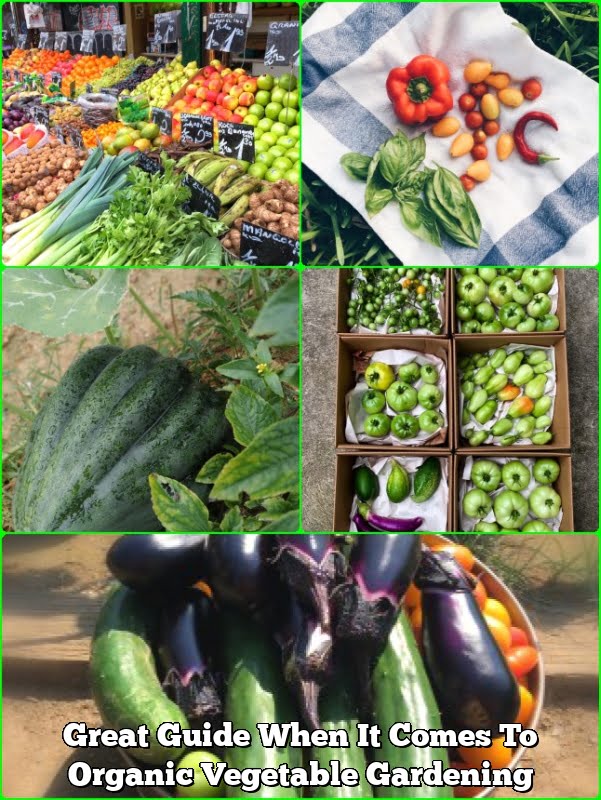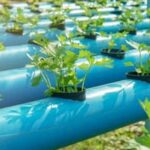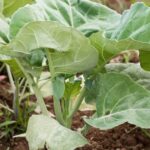Are you interested in starting your own organic vegetable garden but not sure where to begin? This organic vegetable gardening guide will provide you with everything you need to know to get started. Whether you’re a beginner or have some experience with gardening, this guide will help you grow healthy and delicious vegetables in an environmentally friendly way.
Organic vegetable gardening has become increasingly popular in recent years as more people are looking for ways to live a healthier and more sustainable lifestyle. By following the practices outlined in this guide, you can grow your own vegetables without the use of synthetic fertilizers, pesticides, or genetically modified organisms.
In this article, we will cover everything from the benefits of organic vegetable gardening to choosing the right location for your garden, selecting the best vegetables to grow organically, soil preparation and composting, planting and maintenance tips, natural pest control and disease prevention, harvesting and storing organic vegetables, as well as provide resources and tools for success.
Whether you have a small backyard or a large plot of land, this guide will help you create a thriving organic vegetable garden that will provide you with fresh produce all season long.
Let’s get started.
Benefits of Organic Vegetable Gardening
Organic vegetable gardening offers numerous benefits for both the environment and personal health. By choosing to grow your vegetables organically, you are making a positive impact on the environment by reducing the use of harmful chemicals and pesticides. Additionally, organic farming practices promote soil health and biodiversity, which is crucial for sustaining healthy ecosystems.
Health Benefits
One of the most significant benefits of organic vegetable gardening is the improved nutritional value of the produce. Organic vegetables are grown without synthetic fertilizers and pesticides, resulting in higher levels of essential nutrients and antioxidants. Consuming these nutrient-dense vegetables can contribute to improved overall health and a stronger immune system.
Environmental Benefits
Organic vegetable gardening also has positive effects on the environment. By avoiding the use of chemical fertilizers and pesticides, organic farmers help to protect water quality, reduce soil erosion, and conserve energy. Furthermore, organic agriculture reduces air pollution, greenhouse gas emissions, and overall environmental contamination.
Economic Benefits
In addition to health and environmental benefits, organic vegetable gardening can also have economic advantages. While initial setup costs may be higher than conventional methods due to composting materials or natural pest control methods, over time organic gardening can be more affordable as you produce more of your own food.
Moreover, there is an increasing demand for organically grown produce in local markets or through community-supported agriculture (CSA) programs, potentially providing a source of income for those who wish to sell their surplus organically-grown vegetables.
Choosing the Right Location for Your Garden
Consider Sunlight and Shade
When selecting the perfect location for your organic vegetable garden, it is essential to consider the amount of sunlight and shade that the area receives. Most vegetables require at least 6 hours of direct sunlight per day, so choose a spot in your yard or property that gets adequate sunlight. Additionally, be mindful of any tall trees or buildings that may cast shadows on the garden throughout the day.
Proximity to Water
Another crucial factor to consider when choosing a location for your organic vegetable garden is its proximity to a water source. Vegetables need consistent watering, especially during hot and dry periods. Therefore, it is best to place your garden near a water hose or irrigation system to make watering more convenient and effective.
Soil Quality
The quality of the soil in your chosen location is also important for successful organic vegetable gardening. Conduct a soil test to determine its pH level and nutrient content. Look for well-draining soil with good fertility that will provide the necessary nutrients for your vegetables to thrive. If needed, amend the soil with compost or other organic matter to improve its quality before planting.
By carefully considering these factors when choosing the right location for your organic vegetable garden, you can create an optimal environment for growing healthy and bountiful crops. Paying attention to sunlight, shade, water accessibility, and soil quality will set the foundation for a successful and fruitful gardening experience as you embark on your organic vegetable gardening journey.
Selecting the Best Vegetables to Grow Organically
When it comes to starting your own organic vegetable garden, one of the most important decisions you’ll make is choosing which vegetables to grow. The good news is that there are plenty of options to choose from, and you can select a variety of vegetables that not only suit your taste but also thrive in your specific climate and growing conditions.
Some popular choices for organic vegetable gardening include tomatoes, peppers, cucumbers, carrots, lettuce, spinach, and various types of herbs. These vegetables are not only delicious and nutritious but also relatively easy to grow organically. It’s important to consider factors such as the space you have available, the amount of sunlight your garden receives, and the local climate when selecting which vegetables to plant.
In addition to choosing vegetables that you enjoy eating and that are well-suited to your garden’s conditions, it’s also a good idea to prioritize growing vegetables that are known for being resilient against pests and diseases. For example, certain varieties of squash and zucchini have natural defenses against common pests like squash bugs and vine borers.
By doing some research or consulting with experienced organic gardeners in your area, you can identify which vegetables are best suited for successful organic cultivation.
| Popular Vegetables for Organic Gardening | Resilient Vegetables Against Pests/Diseases |
|---|---|
| Tomatoes | Zucchini |
| Peppers | Squash |
| Cucumbers | Broccoli |
| Lettuce | Cabbage |
| Spinach | Kale |
| Carrots | Garlic/Onions |
By carefully selecting the best vegetables for organic gardening based on these considerations, you can increase your chances of success as you embark on your journey towards cultivating a thriving organic vegetable garden. Remember that growing organically requires patience and dedication, but the rewards – both in terms of healthful produce and environmental sustainability – make it all worthwhile.
So whether you’re a seasoned gardener or just getting started with organic vegetable gardening guide I hope this section was able to help give insight into potential planys you may incorpoorate into week desired conceptreaversable location.
Soil Preparation and Composting
One of the most important aspects of successful organic vegetable gardening is proper soil preparation and composting. Before planting your organic vegetables, it’s crucial to ensure that your soil is nutrient-rich and well-draining. This can be achieved through the addition of organic matter such as compost, aged manure, or grass clippings. Organic matter helps improve soil structure, retain moisture, and provides essential nutrients for plant growth.
Composting is a key practice in organic gardening as it not only reduces kitchen and garden waste but also produces a nutrient-rich amendment for the soil. Compost improves soil fertility and promotes beneficial microbial activity, which in turn benefits plant health. It’s important to use a mix of “green” materials (such as fruit and vegetable scraps) and “brown” materials (like leaves and straw) in your compost pile to achieve a good balance of carbon and nitrogen.
In addition to traditional composting methods, vermicomposting (composting with worms) is also an effective way to create natural fertilizer for your organic vegetable garden. Worm castings are rich in nutrients like nitrogen, phosphorus, potassium, and beneficial microbes that promote healthy plant growth. By incorporating these practices into your gardening routine, you’ll create an ideal environment for growing vibrant, nutritious organic vegetables.
| Aspect | Details |
|---|---|
| Soil Preparation | Addition of organic matter such as compost, aged manure or grass clippings. |
| Composting | Use a mix of “green” materials (fruit/vegetable scraps) and “brown” materials (leaves/straw) for good balance. |
| Vermicomposting | The use of worms to create natural fertilizer for the garden. |
Planting and Maintenance Tips for Organic Vegetable Gardens
When it comes to planting and maintaining your organic vegetable garden, there are a few key tips to keep in mind to ensure successful growth and a bountiful harvest. Here are some essential guidelines to follow:
1. Proper Spacing: When planting your vegetables, be sure to space them according to their specific needs. This will allow for adequate airflow and prevent overcrowding, which can lead to disease.
2. Mulching: Mulch is an essential element in organic gardening as it helps retain moisture, suppress weeds, and improve soil quality. Use natural materials such as straw, grass clippings, or chopped leaves as mulch around your plants.
3. Watering: It is important to water your vegetable garden regularly, especially during dry periods. Water deeply and infrequently to encourage deep root growth. Consider using drip irrigation or a soaker hose to deliver water directly to the base of the plants.
In addition to these tips, regular maintenance is crucial for the health of your organic vegetable garden. This includes tasks such as weeding, pruning, and monitoring for pests and diseases. By staying on top of these tasks, you can help promote strong, healthy plants that are more resistant to common issues.
Remember that each type of vegetable may have its own specific planting and maintenance needs, so be sure to do your research for each crop you plan to grow in your organic garden.
Natural Pest Control and Disease Prevention
Organic vegetable gardening provides a safe and sustainable way to grow your own food while minimizing harm to the environment. One key aspect of successful organic gardening is natural pest control and disease prevention. By using environmentally-friendly methods, you can keep your garden healthy and thriving without relying on harmful chemicals.
Here are some effective natural pest control and disease prevention techniques for your organic vegetable garden:
- Encourage beneficial insects: attracting ladybugs, lacewings, and other predatory insects can help keep harmful pests in check. Planting flowers such as marigolds, daisies, and calendula can attract these helpful insects to your garden.
- Companion planting: certain plants can repel pests or attract beneficial insects when grown alongside vegetables. For example, planting basil near tomatoes can deter pests like aphids and hornworms, while nasturtiums can protect squash plants from squash bugs.
- Neem oil spray: neem oil is a natural pesticide that can be used to control insect pests such as aphids, whiteflies, and mites. It’s safe for use on edible crops and won’t harm beneficial insects.
- Crop rotation: rotating the location of your vegetable crops from year to year can help prevent the buildup of soil-borne diseases and reduce the likelihood of pest infestations.
By implementing these natural pest control and disease prevention methods in your organic vegetable garden, you can maintain a balanced ecosystem that supports healthy plant growth without resorting to harmful chemicals.
Remember that preventing problems before they occur is always easier than trying to solve them once they’ve taken hold. With a little attention and care, you can enjoy a bountiful harvest of organic vegetables from your garden while promoting a healthy environment for yourself and future generations.
Harvesting and Storing Organic Vegetables
Once your organic vegetable garden has flourished, it’s time to reap the rewards of your hard work. Harvesting your organic vegetables at the right time is crucial for freshness and flavor. It is recommended to harvest vegetables in the morning when they are at their peak. To maintain the integrity of your organic produce, handle them with care and avoid bruising or damaging the vegetables during harvest.
Storing your harvested organic vegetables properly is essential to extend their shelf life and preserve their quality. The method of storage may vary depending on the type of vegetable. Some vegetables such as tomatoes, cucumbers, and peppers are best stored at room temperature, while others like carrots, onions, and potatoes do well in cool, dark places. Consider investing in storage containers such as breathable mesh bags or wooden crates to keep your harvested organic vegetables fresh for longer periods.
Another important aspect of harvesting and storing organic vegetables is knowing when to consume or preserve them. Utilize preservation methods such as canning, freezing, or pickling to enjoy your organic produce beyond its regular shelf life. Try to use up any excess produce by incorporating it into meals or donating it to friends and family. By maximizing the use of your harvested organic vegetables, you can fully appreciate the benefits of your hard work in your organic vegetable garden.
In addition to proper harvesting and storage techniques, consider sharing surplus produce with neighbors through community exchange programs or farmer’s markets. Building a sense of community around food sharing not only reduces waste but also encourages others to embrace organic vegetable gardening practices. Ultimately, harvesting and storing organic vegetables offers a satisfying conclusion to the efforts put into nurturing a successful organic garden.
Resources and Tools for Organic Vegetable Gardening Success
As you venture into the world of organic vegetable gardening, it’s important to have the right resources and tools to ensure success. One essential resource is a reliable organic vegetable gardening guide, which can provide valuable information on best practices, tips for specific vegetables, and troubleshooting common issues. There are many comprehensive guides available both in print and online, so be sure to do your research and find one that aligns with your gardening goals.
In addition to a guide, having the right tools for organic vegetable gardening is crucial. Some basic tools you’ll need include hand trowels, rakes, watering cans or hoses, and pruners. It’s also helpful to invest in quality gardening gloves to protect your hands as you work in the garden. For larger gardens, consider purchasing a sturdy wheelbarrow or garden cart to transport soil, plants, and harvested vegetables.
Another important resource for organic vegetable gardening success is access to high-quality seeds or seedlings. Look for a reputable seed supplier that offers organic and non-GMO seeds suited for your climate and growing conditions. In addition, consider joining a local seed swap or plant exchange group to expand your seed collection and connect with other like-minded gardeners in your community.
As you gather resources and tools for your organic vegetable gardening journey, don’t forget about the importance of ongoing education and support. Consider joining a local gardening club or online community where you can learn from experienced gardeners, ask questions, and share your own experiences. Utilize trusted websites, podcasts, and social media channels dedicated to organic gardening for continued inspiration and knowledge sharing.
Conclusion and Encouragement for New Organic Gardeners
In conclusion, organic vegetable gardening is not only beneficial for your health and the environment, but it also provides a rewarding experience of growing your own food. By following the guidelines and tips provided in this organic vegetable gardening guide, you can enjoy fresh, high-quality produce while contributing to sustainable and eco-friendly practices. The satisfaction of knowing that you are consuming chemical-free vegetables that you have personally nurtured is truly unparalleled.
As a new organic gardener, it’s important to remember that success may not happen overnight. Gardening requires patience, diligence, and a willingness to learn from both successes and failures. Don’t be discouraged by initial setbacks – every experienced gardener started from scratch at some point. Embrace the process of learning and experimentation, and take pride in the progress you make along the way.
Lastly, remember that the joy of organic vegetable gardening extends beyond just the physical act of tending to your garden. It fosters a deeper connection with nature, promotes mindfulness and offers a sense of accomplishment. So, roll up your sleeves, get your hands dirty, and embark on this fulfilling journey towards cultivating your very own organic vegetable garden. With dedication and perseverance, you’ll soon reap the bountiful rewards of your labor. Happy gardening.
Frequently Asked Questions
How Do I Start an Organic Vegetable Garden?
Starting an organic vegetable garden requires several steps. First, choose a spot with plenty of sunlight and good soil drainage. Next, prepare the soil by adding compost or organic fertilizers. Then, select organic seeds or seedlings to plant and ensure proper watering and maintenance.
What Are the Rules for Organic Gardening?
Organic gardening follows specific rules to ensure that no synthetic chemicals or pesticides are used on the plants. This means using natural alternatives for pest control, avoiding synthetic fertilizers, and prioritizing soil health through organic amendments like compost and mulch.
What Are the Essentials for Organic Gardening?
The essentials for organic gardening include high-quality soil with plenty of organic matter, such as compost or aged manure. It’s also important to have access to natural pest control methods like beneficial insects or companion planting. Additionally, having a reliable water source and proper sunlight are essential for successful organic gardening.

If you’re looking to get into vegetable gardening, or are just looking for some tips on how to make your current garden better, then you’ve come to the right place! My name is Ethel and I have been gardening for years. In this blog, I’m going to share with you some of my best tips on how to create a successful vegetable garden.





